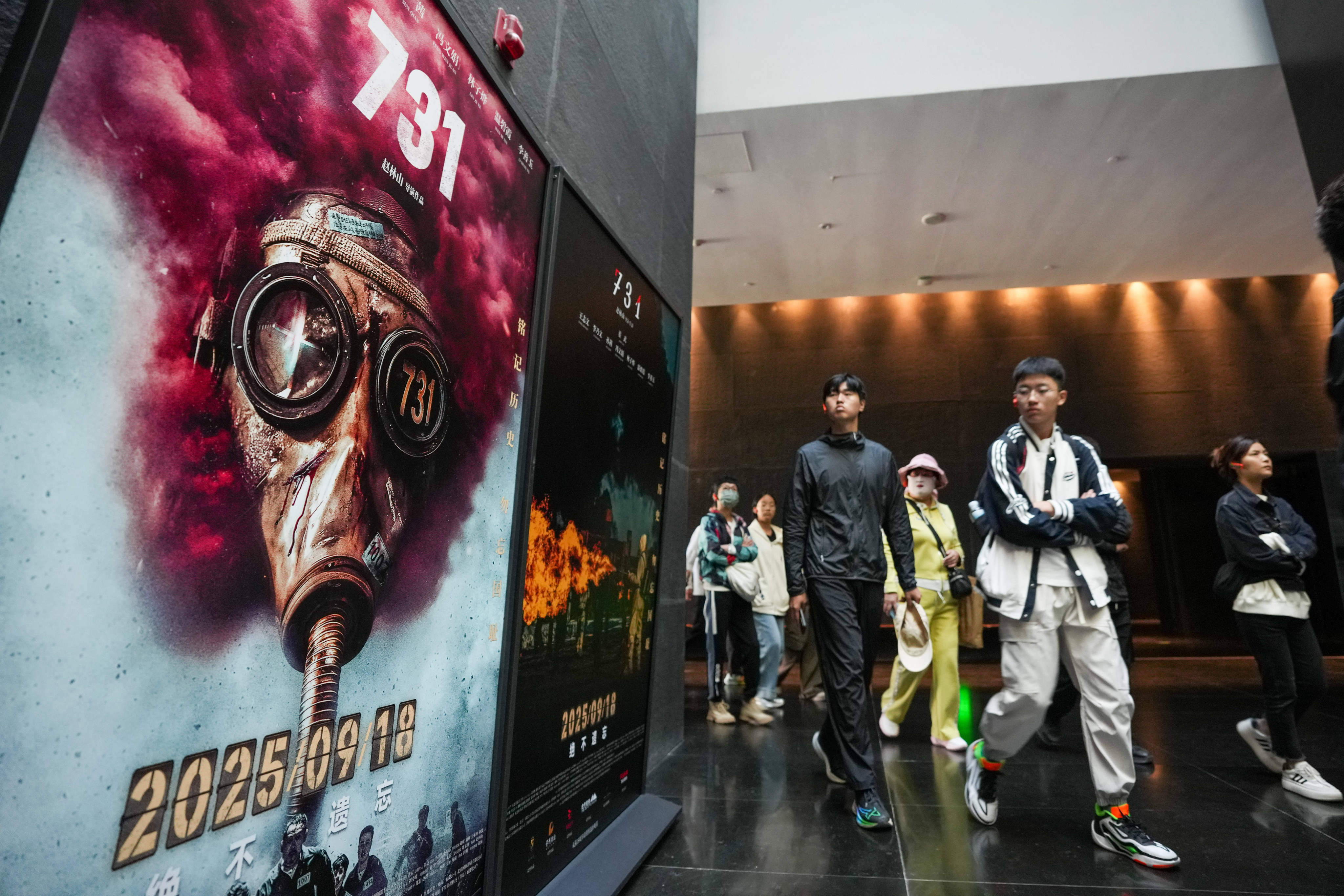Copyright scmp

A Chinese historical film about Japan’s wartime atrocities has drawn criticism not for its subject matter, but over what many viewers have described as a clumsy portrayal of one of the darkest chapters of World War II. 731 – a drama centred on the Imperial Japanese Army’s notorious biological warfare unit that conducted experiments on Chinese civilians under the guise of disease prevention – premiered on September 18 to coincide with the anniversary of the 1931 Mukden Incident, the false-flag attack on a railway that launched Japan’s full-scale invasion of Manchuria. The film’s other title for its international release is Evil Unbound. In the months leading up to the release, there was concern within the Japanese government that the film’s portrayal of the horrors inflicted by Unit 731 in the war would provoke outbursts of anger – and potentially even violence – against Japanese living in China. Instead, much of the public reaction has been focused on what audiences and reviewers saw as historical inaccuracies, implausible scenes and a perceived tone that undermined the gravity of the subject. Analysts say the backlash reflects the deep sensitivity among Chinese viewers over Japan’s wartime legacy and a desire for dignified historical representation rather than stylised spectacle. “Unit 731 committed truly horrific acts, yet by broadcasting a film that seems to trivialise the victims it gives the impression that perhaps the things they did were not so terrible,” said Dr Homare Endo, director of the Global Research Institute on China Issues. “And that is an insult to the souls of those who truly suffered.” Unit 731 was established in 1936 under the command of General Shiro Ishii in the Pingfang district of Harbin, in northeast China. Officially designated the “Epidemic Prevention and Water Purification Department” of the Imperial Japanese Army, it operated as a covert biological and chemical warfare research unit. Historians say the unit conducted experiments on thousands of prisoners – mostly Chinese, but also Koreans, Soviets and others – exposing them to diseases such as cholera, typhus and plague. Victims were subjected to vivisection, frostbite testing and other fatal procedures. The atrocities of Unit 731 are among the most extensively documented of Japan’s wartime crimes, with evidence drawn from post-war testimonies, Chinese and Western scholarship and declassified Japanese military records. Screening jitters Ahead of the film’s release, Japanese officials had voiced concern that it might inflame anti-Japanese sentiment in China. A Kyodo News report in April said Tokyo was monitoring early reactions to the trailer, with some officials warning that it could “rekindle rows over history”. By July, there were reports of anxiety among Japanese residents in China that they might be targeted if public anger spilled over. After the film’s opening, local Chinese media reported there were 250,000 screenings nationwide and box office takings topped 1.45 billion yuan (US$204 million) in its first 10 days. But overall reviews were mixed on Chinese media platforms, with some praising the production while others took issue with the plotline. Worldwide, the film got a score of 3.1 out of 10 on IMDb, or the Internet Movie Database, with some of the reviews scathing, as users say the show diminished the suffering of the real victims of Unit 731. “While the film claims to ‘never forget history’, it actually completely disrespects history,” read one review. “Transforming this weighty historical event into a ridiculous, illogical narrative … this film is abysmal.” Another user described the film’s approach as “too lighthearted”, likening its tone to the popular South Korean survival drama Squid Game. Some viewers criticised director Zhao Linshan, with one comment calling for an apology “to all Chinese people and the heroic martyrs who passed away”. Scenes singled out for ridicule included a procession of courtesans in a germ-warfare facility, samurai playing shamisen – a Japanese string instrument – during an execution, a female officer commanding Japanese troops, and a float-racing festival occurring just outside the gates of the Unit 731 complex. Revisionist response The film’s poor reception has also been noted in Japan, where mainstream media outlets said any attempt by its producers to stoke anti-Japanese sentiment had backfired. Some nationalist commentators, however, sought to use the controversy to question China’s portrayal of history. Among them was the Society for the Dissemination of Historical Fact – a small revisionist group in Tokyo known for rejecting established evidence of Japan’s wartime atrocities, including those committed by Unit 731. Historians have repeatedly dismissed the group’s claims as unfounded, citing extensive documentation and testimony confirming the unit’s biological warfare experiments and mass killings. “We expected films like this because it was the 80th anniversary of the end of the war,” said Hiromichi Moteki, the group’s chairman, who alleged that the production was politically motivated. “But when they make movies like this, they really should know that it is only going to make them look bad in the end.” Scholars say such revisionist views remain a fringe position even within Japan, where most historians accept the atrocities as indisputable and have called for the country to face its past more openly. Endo said the biggest mistake made by the producers of 731 was to exploit those atrocities as “show business”. “It even trivialised the war of resistance against Japan, turning it into a crowd-pleasing fantasy, so everything backfired,” she suggested. She added that while anti-Japanese themes continued to feature in some Chinese productions and media narratives, relying on them risked damaging China’s own interests. Endo pointed to sectors such as semiconductor manufacturing in which both Beijing and Tokyo stood to gain, but where opportunities could be missed if old war wounds were reopened.



